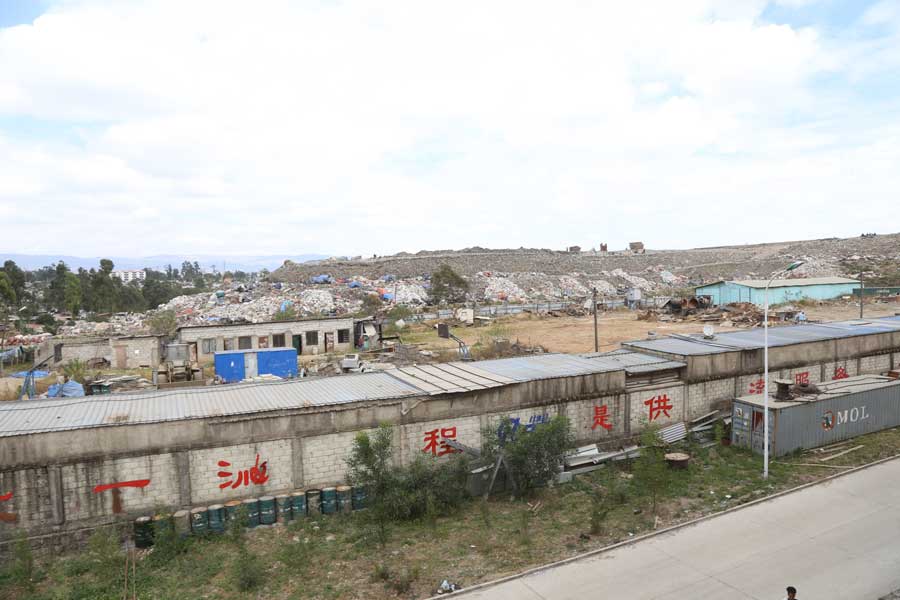
Commentaries | Oct 30,2021
A scene at my local district office recently became a symbolic expression of the anger and exasperation many feel at the level of poverty in Ethiopia.
A young man waiting to be given service at the office, after much haggling, raised his hand against one of the civil servants that he believed was misinforming him. The young man had become frustrated at the poor and time-wasting process he had been made to suffer through. He had had enough.
While violence under almost any circumstance is not acceptable, it was not impossible to empathise. Life in Ethiopia, as in anywhere else in Africa, is no walk in the park.
This decade will be game-changing for Africa, or at least it is claimed, as a number of the sub-Saharan countries have been ranked some of the fastest growing in the world. But what even these optimists do not comprehend is that Africa’s potential is actually unprecedented if only the countries within it can focus on self-growth.
With the ubiquity of aid money, many African leaders seem only interested in keeping donors happy. And given that this money is not being mobilised domestically, the incentive is not there to keep governments accountable to the people. The fact that wealth can be generated by simply looking within the African continent does not seem to interest many.
There is a certain sense of comfort felt by African governments in the way their countries dip in and out of poverty. And while many leaders, including our own, speak about the GDP and national wealth, most wealth is being created by a few.
The gap between the rich and the poor is growing, while the reality of a thriving middle class might never come true. This is made clear through how policies are carried out. While there are many ways multi-million-dollar companies are taken care of, with the justification that they create jobs, there is little help thrown the way of individuals just trying to make their way up the ladder.
While few might have the will to become self-employed and slowly begin to employ others, they are invisible to the government. The policymakers forget that small businesses are the backbone of any healthy economy and not the multi-million-dollar companies able to build skyscrapers in the centre of the capital.
Africa has a potential, but it has been exploited by everyone else except those inhabiting the continent. We have to realise that the biggest asset present in Africa is its people. There are many that not only wish for it to be great but actually work each day toward that goal. This is true even as the government discourages hard-working nationals by going all gooey over every non-national that walks through Bole International Airport.
The advantage of looking in instead of looking out and building on the continent’s natural riches is something the rest of the world has never seen before. Our ammunition is the large labour force at our disposal and the opportunity for trade. For instance, cutting intra-African tariffs could bring 3.6 billion dollars in welfare gains to the continent through a boost in production and cheaper goods, according to the United Nations Conference on Trade & Development (UNCTAD).
But when we are too busy arguing about who speaks which language, the rest of the world wins. After all, it is a competition. Even our devastating fracture would most likely end up enriching someone.
It is our governments that can guide us clear of such disaster and into making wise use of such initiatives. These types of changes can only be pioneered by visionary leaders of the continent that see the advantage in working together. There is much to be gained with our union, a power that can barely be reckoned with. But today we are not there yet. We are not at a position where world leaders need us at their table. We are becoming tokenized place holders of blackness. This will continue unless we stand united. This is true for all forms of government, to understand the power that lays within its palms. All of the inspiration, finance, creation and innovation can be found from home. Only in recognition of the importance of our voice and unity can our communities thrive.
PUBLISHED ON
Jan 18,2020 [ VOL
20 , NO
1029]


Commentaries | Oct 30,2021

Radar | Jun 08,2019

My Opinion | Jan 09,2021

Viewpoints | Nov 30,2024

Commentaries | Feb 29,2020

Editorial | Jan 15,2022

Commentaries | Mar 23,2024

Fortune News | Nov 09,2019

Viewpoints | Oct 07,2023

Editorial | Jun 17,2020

Dec 22 , 2024 . By TIZITA SHEWAFERAW
Charged with transforming colossal state-owned enterprises into modern and competitiv...

Aug 18 , 2024 . By AKSAH ITALO
Although predictable Yonas Zerihun's job in the ride-hailing service is not immune to...

Jul 28 , 2024 . By TIZITA SHEWAFERAW
Unhabitual, perhaps too many, Samuel Gebreyohannes, 38, used to occasionally enjoy a couple of beers at breakfast. However, he recently swit...

Jul 13 , 2024 . By AKSAH ITALO
Investors who rely on tractors, trucks, and field vehicles for commuting, transporting commodities, and f...

Oct 11 , 2025
Ladislas Farago, a roving Associated Press (AP) correspondent, arrived in Ethiopia in...

Oct 4 , 2025
Eyob Tekalegn (PhD) had been in the Governor's chair for only weeks when, on Septembe...

Sep 27 , 2025
Four years into an experiment with “shock therapy” in education, the national moo...

Sep 20 , 2025
Getachew Reda's return to the national stage was always going to stir attention. Once...